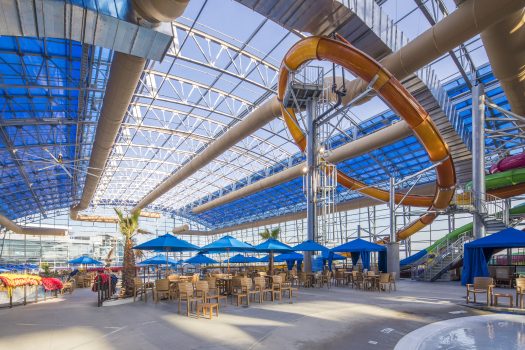Hotel News Now is reporting on a new trend analysis report that shows the U.S. hotel industry spent billions less on capital expenditures this year compared to previous years because of the pandemic.
Published by: Bryan Wroten/Hotel News Now
Published date: December 2020
Hoteliers significantly pulled back from capital-expenditure spending in 2020 because of the pandemic, dropping from almost $7.3 billion in 2019 to about $2 billion, according to a new trend analysis report.
The report also found hoteliers changed their spending priorities this year, focusing on things such as cleaning and sanitation equipment, signage about social distancing and wearing masks, reconfiguring food-and-beverage outlets and installing air-filtration systems over expenditures such as software and technology upgrades, new room designs and upgrading fitness centers.
The pullback has brought CapEx spending down to its lowest level since Bjorn Hanson, adjunct professor at the NYU School of Professional Studies – Jonathan M. Tisch Center of Hospitality and author of the analysis, began tracking these estimates in 2005, when it was $4.8 billion. The amount spent has increased each year except for a similar fall in 2009 ($3.3 billion) and 2010 ($2.7 billion), but the amount has grown steadily since then.
The yearly estimates are based on interviews Hanson conducted with selected hotel executives, analysis of announced brand standards and other sources.
When hoteliers planned out their CapEx for 2020, they were basing their budgets on 2019 performance, which saw the highest occupancy levels since 1981, Hanson said in an interview. They had about two full months at the beginning of the year before having to shut down in the middle of March. While some might expect to see a mirror image in 2021, with more CapEx in November and December, that’s not likely to happen.
While there will be a recovery in 2021, particularly over the summer and after Labor Day, that doesn’t mean much for CapEx, he said.
“If occupancy starts to pick up, there may be some capital expenditures, but it won’t be a resumption,” he said. “It’ll be dealing with some postponed expenditures.”
One challenge for hoteliers moving forward on CapEx projects in 2021 could be spending money on something like redecorating guestrooms and then learning the brands have changed their standards in response to the pandemic, requiring the hotel to spend more to be consistent with the new standards, Hanson said.
Lobbies need to be refreshed every five to seven years, he said. A brand could change its standard from upholstered furniture in public spaces to furniture with nonporous surfaces because it is more sanitary and, just as important, it looks to be more sanitary. If a hotelier spends the money to redecorate using a pre-COVID-19 design, that presents a problem.
“Now they think, ‘I should have anticipated that there would have been changes,’ and, ‘Maybe the brand will let me delay a bit, but now I have a lobby that’s maybe not going to have the same appeal to some travelers,’” he said.
While 2021 CapEx amounts will likely be similar to 2020, or even lower, the industry will likely take on the necessary expenditures in 2022, Hanson said.
“There is likely to be an increase, but it’s not getting back to even 2011, 2012 levels,” he said, which his report estimates to have been $3.75 billion and $5.1 billion, respectively.
Some of the physical changes hoteliers have made to their properties will be improved, Hanson said. Hoteliers who set up separation panels and other dividers this past year might be looking to install something more substantial and sanitary and less temporary.
Another CapEx project hoteliers are considering is the installation or improvement of air filtration, he said. These are expensive units because it’s not simply adding a filter in front of an existing air handler as the handler might not have the capacity to drive air through the new filter. Some air handlers don’t have a spacer to install the filters.
“There will be some upgrading of lobbies and other things just to look new and fresh, but those will be the ones that were being planned for 2020 and 2021, and they’re going to be happening a year or two later,” he said.


